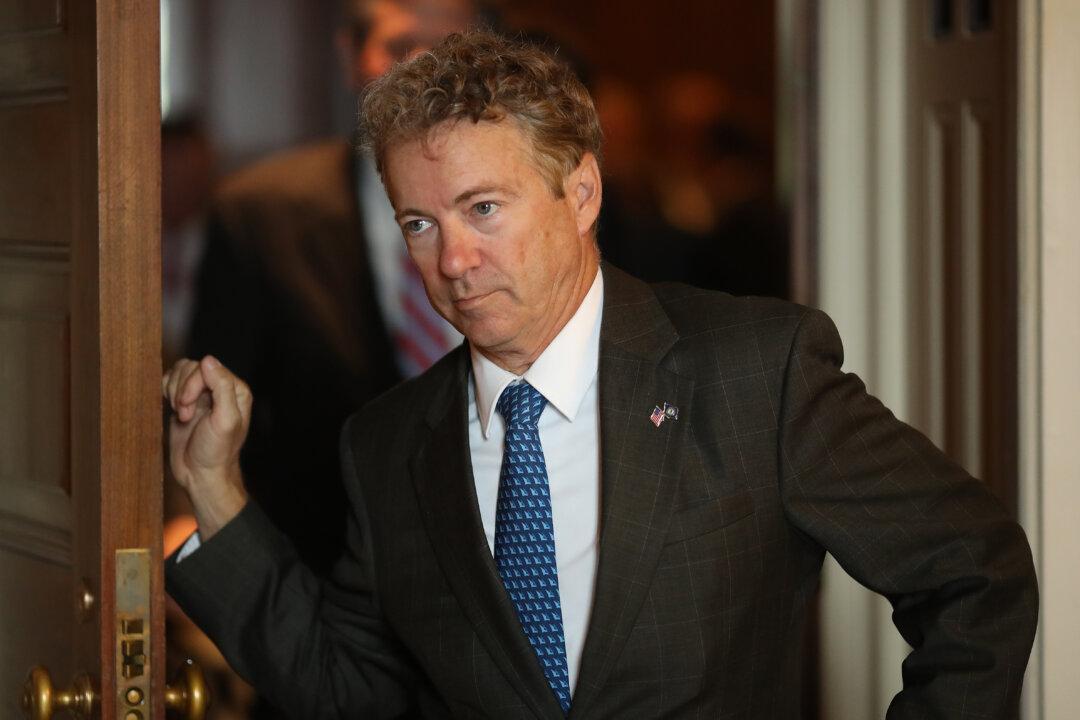Sen. Rand Paul (R-Ky.), blocked a Senate vote on a resolution that passed the House.
On Thursday, Paul blocked the vote on the resolution which the House approved the day prior, by objecting to a request by Senate Minority Leader Chuck Schumer (D-N.Y.) for a vote.





